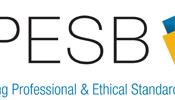True Diversity: Ethics Development, Understanding, and Application
Woody Allen was quoted as saying, "Good people seem to sleep better at night, but bad people appear to enjoy their waking hours more." How does this statement affect you? Do you sleep well at night? Ethics have a being on almost everything we do and think of doing. What is ethics? And how do they come about?
Ethics refers to the study and development of one's ethical standards. Feelings, laws, and social norms can deviate from what is ethical. So it is necessary to constantly examine one's standards to ensure that they are reasonable and well founded. Ethics also means, then, the continuous effort of studying our own moral beliefs and our moral conduct, and striving to ensure that we, and the institutions we help to shape, live up to standards that are reasonable and solidly-based. Lets examine the variety of things that effect this normalization of this topic.
When people are asked, "What does ethics mean to you?" their responses are varied but among their replies were the following:
"Ethics has to do with what my feelings tell me is right or wrong."
"Ethics has to do with my religious beliefs."
"Being ethical is doing what the law requires."
"Ethics consists of the standards of behavior our society accepts."
"I don't know what the word means."
The meaning of "ethics" is hard for people in general to express, and the views many people have about ethics are shaky. Many people tend to equate ethics with their feelings. But being ethical is clearly not a matter of following one's feelings. A person following his or her feelings may recoil from doing what is right. In fact, feelings frequently deviate from what is ethical.
One should not identify ethics with...



Defined Well
This essay answers the basic question of 'what is ethics' very well. Should be required reading, for all.
7 out of 7 people found this comment useful.